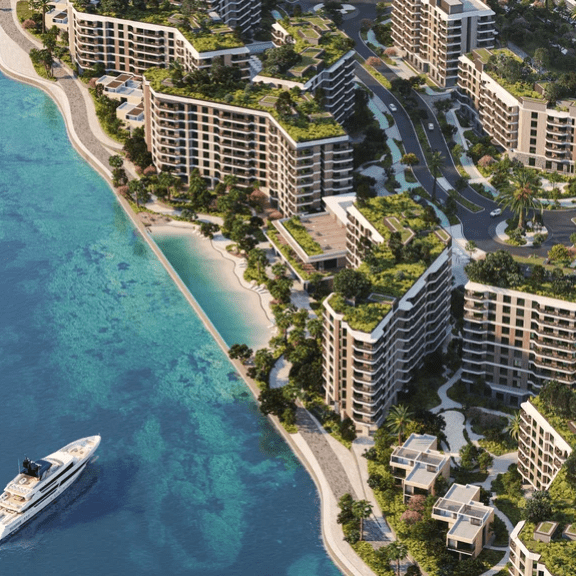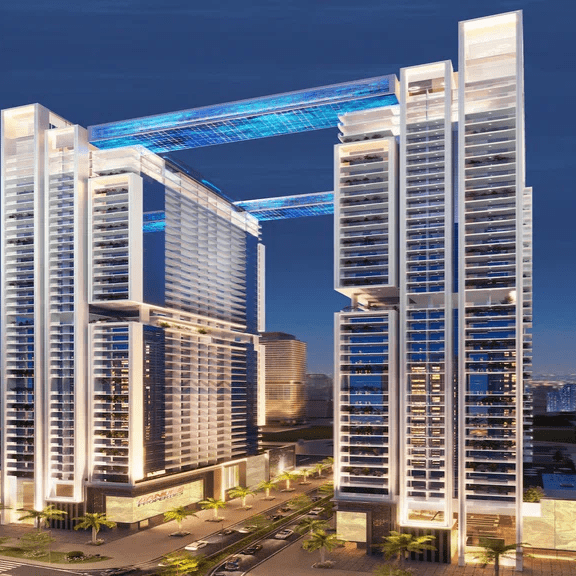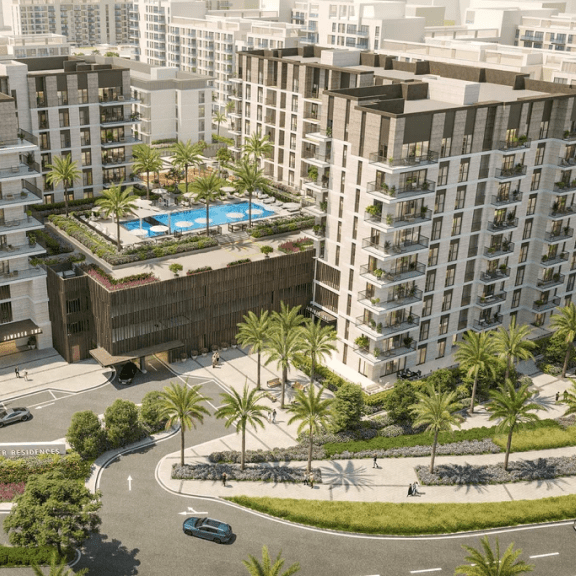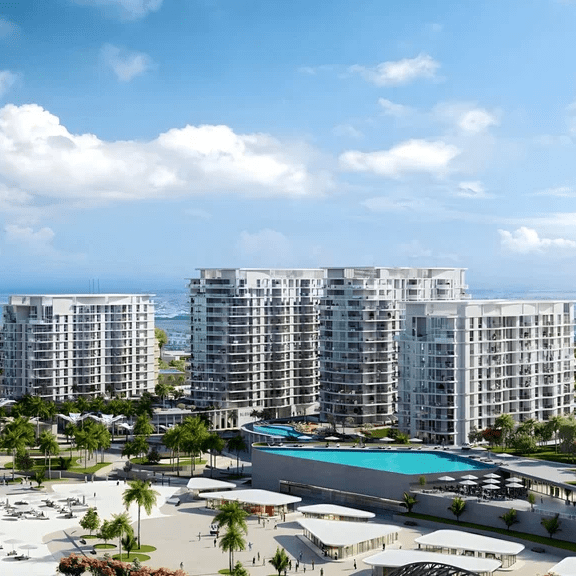Dubai's allure to foreigners lies in its high quality of life, secure environment, and conducive business climate. Adding to its appeal, the Emirate's government has streamlined the property acquisition process for expatriates, consequently spurring a surge in demand for homes and apartments. For those seeking guidance on purchasing a flat in Dubai, our comprehensive guide covers where to initiate your journey, what aspects to consider, the procedural steps involved, and distinct attributes of acquiring property in the UAE's most renowned emirate.
Where to Start
The minimum age for property acquisition in Dubai is 21. In cases where the buyer is a minor, a legal guardian or parent can act on their behalf during the purchase process. However, a court resolution is mandatory for the sale of property owned by a minor.
Purchasing real estate in Dubai, as in any other city, demands careful consideration and prudence. The intricate nature of the process underscores the wisdom in enlisting the expertise of a professional. Dubai boasts numerous real estate agencies, each offering an extensive array of services for property selection and ownership arrangements. Opting for a reputable company is facilitated by seeking recommendations from family, friends, or colleagues who have previously availed of their services. Ultimately, the competence of a commendable real estate agent is underscored by a track record of successful transactions and favourable testimonials.
In the absence of personal recommendations, seek feedback online. Explore the chosen company's website, assessing their professional background, prominent developer partnerships, and the extent of their property portfolio. Verify if the company has been honoured with any industry accolades, as those committed to their reputation tend to excel in professional competitions. Delve into customer reviews to gain insights. A crucial factor is to verify the company's licensing status. Dubai mandates that all real estate agencies hold a Real Estate Regulatory Agency (RERA) licence.
Stonehenge Residences (Housearch)
Where to Buy a Flat in Dubai
Dubai encompasses opulent neighbourhoods alongside more budget-friendly options, catering to expatriates with varying incomes. Residents from diverse financial backgrounds opt for distinct locales. Dubai Marina, Palm Jumeirah, Business Bay, and Downtown rank among the pricier districts, whereas International City or Dubai Sports City offer more economical choices.
The city boasts tranquil and serene neighbourhoods, alongside vibrant and bustling districts that are abuzz with activity. Families with children often gravitate towards The Greens or Jumeirah Lake Towers due to their well-developed infrastructure, featuring amenities such as shops, hospitals, parks, and family-oriented recreational options. On the other hand, dynamic locales like Dubai Marina or Business Bay are favoured by couples without children and single individuals seeking an energetic environment.
Dubai Marina. Photo: Michael Zöllner (Pixabay)
Regardless, factor in your individual requirements and inclinations when selecting a residence. Gauge the distance to your workplace to gauge the length of your daily commute. Determine which amenities hold significance for you to have in close proximity, whether it's a supermarket or mall within walking distance, a hospital, school, kindergarten, or fitness club. Consider these aspects while choosing the district that aligns with your preferences.
Real estate transactions in Dubai are governed by Law №7 of 2006 Concerning Land Registration in the Emirate of Dubai. This legislation outlines the eligibility criteria for property acquisition in the Emirate. The law stipulates that foreigners residing in the UAE can opt for either leasehold arrangements (long-term rental for 99 years) or freehold ownership. While a majority of Dubai's areas fall under the freehold category, there are leasehold districts as well (like the well-known Jumeirah district), underscoring the importance of verifying whether the property is situated within a freehold zone.
If you intend to utilise a car in Dubai, ensure that the residential complex you're considering offers parking facilities. Owning a personal parking space alleviates the ongoing challenge of locating suitable parking spots. While the city provides both paid and free parking zones, they might be situated at a distance from your chosen complex.
When acquiring a property from the secondary market, you have the option to verify its status using the REST app provided by the Dubai Land Department (DLD). The app's Mashrooi feature offers comprehensive insights into a house or flat. Through this, you can ascertain the legitimacy of the seller's ownership, identify any outstanding utility bills, maintenance dues, or existing mortgages tied to the property.
New buildings in the UAE
The Process of Purchasing Property
An expatriate has the opportunity to acquire a property within the new homes market with a 0% interest instalment plan spanning three years, provided the down payment constitutes 25% or more of the property's purchase price. Additionally, various alternative instalment plans are available. One approach involves an initial 10% down payment, followed by annual payments of 10%, and concluding with a 20% payment upon the property's completion. Another option entails a 60% payment of the property's purchase price during the construction phase, followed by the remaining 40% post-construction.
When securing a property reservation, a fee amounting to 5% of its price is required. For purchasing real estate that is currently under construction, an additional prerequisite is a pre-approval (which varies based on the property's level of completion) from the Dubai Land Department (DLD).
Once you have selected the desired real estate and negotiated all terms with the seller, the next step involves signing a contract of sale and purchase, often referred to as a Memorandum of Understanding (MOU) or Contract F. A sample of this contract can be located on the official website of the Dubai Land Department (DLD).
Levanto by ORO 24 (Housearch)
Typically, the responsibility for preparing the contract falls upon the real estate agent. Once the contract is prepared, both the seller and yourself will sign it in the presence of a witness, often the agent. Following this, a standard 10% security deposit is required to be paid to an official trustee. This deposit will be refunded to you upon the completion of the ownership transfer.
Subsequently, a meeting is convened at the developer's office involving the seller, the real estate agent, and yourself to initiate the application and payment for a No Objection Certificate (NOC), necessary for the ownership transfer. The issuance of the NOC by the developer hinges on the condition that the property is devoid of any outstanding service charges.
Once you have obtained the NOC, the final step involves a meeting with the seller at the Dubai Land Department office to formalise the transfer of new ownership rights. To proceed with this, you will need to have the following documents:
- A cheque for the property price payable to the seller.
- Original identity documents of the seller and the buyer (Emirates ID, passport).
- The original NOC.
- A signed Contract F (MOU).
After that, you will receive a title deed and officially become a real estate owner in Dubai.
Downtown. Photo: Olga Ozik (Pixabay)
Property Purchasing Expenses
When purchasing property, the expenses typically encompass several components. The real estate agent's commission amounts to 2% of the property purchase price. The Dubai Land Department fee stands at 4% of the property purchase price, in addition to a 580 AED ($158) administrative fee. For properties valued below 500,000 AED ($136,142), there is a property registration fee of 2,000 AED ($544), along with 5% VAT. For properties exceeding 500,000 AED ($136,142), the fee increases to 4,000 AED ($1,089), plus 5% VAT. Furthermore, there is a Title deed fee of 250 AED ($68).
A typical real estate transaction in Dubai generally takes around four weeks from the moment of signing the contract of sale and purchase. However, if you're purchasing with a mortgage, the process can extend to approximately 10 weeks.
What to Know about Buying Property with a Mortgage
In Dubai, you have the option to purchase real estate using your personal funds or by obtaining a mortgage. For expats seeking a mortgage, the application process requires a valid passport and either a salary statement or bank statement. The initial request typically receives approval within five business days. Subsequently, the expat is given a two-month period to select a property. It's worth noting that if the chosen property is of significant value, the bank may request additional documentation verifying the legitimacy of income, such as tax declarations, trading licences, or financial statements for business owners.
You should be ready for extra expenses, including a mortgage fee of 1% of the loan amount. The bank will also demand a mandatory evaluation of your assets which can cost from 2,500 AED ($680) to 3,500 AED ($953) plus 5% VAT.
Foreigners interested in purchasing a flat or house in Dubai can utilise mortgage broker services, which are readily available in the emirate through numerous companies. Mortgage consultants are required to undergo a Certified Mortgage Broker Course and obtain certification from the Dubai Real Estate Institute. It is essential for buyers to confirm whether a company possesses the necessary licence from the regulatory authority. Additionally, the Profezo platform offers a comprehensive list of mortgage brokers operating in the UAE. The commission charged by a broker typically ranges from 1% to 2% of the total value of the mortgage deal.
In a Nutshell
Presently, Dubai's authorities are actively working to attract a higher number of foreign investors by streamlining the property acquisition process for non-residents. As of now, individuals have the opportunity to purchase apartments or villas within designated freehold zones in Dubai. The acquisition of property can be achieved through personal funds, a mortgage, or structured instalments. A pivotal aspect of this process is selecting a dependable real estate agent who can offer guidance on suitable residential developments and manage the transaction with expertise.
Cover photo: Tom (Pixabay)




